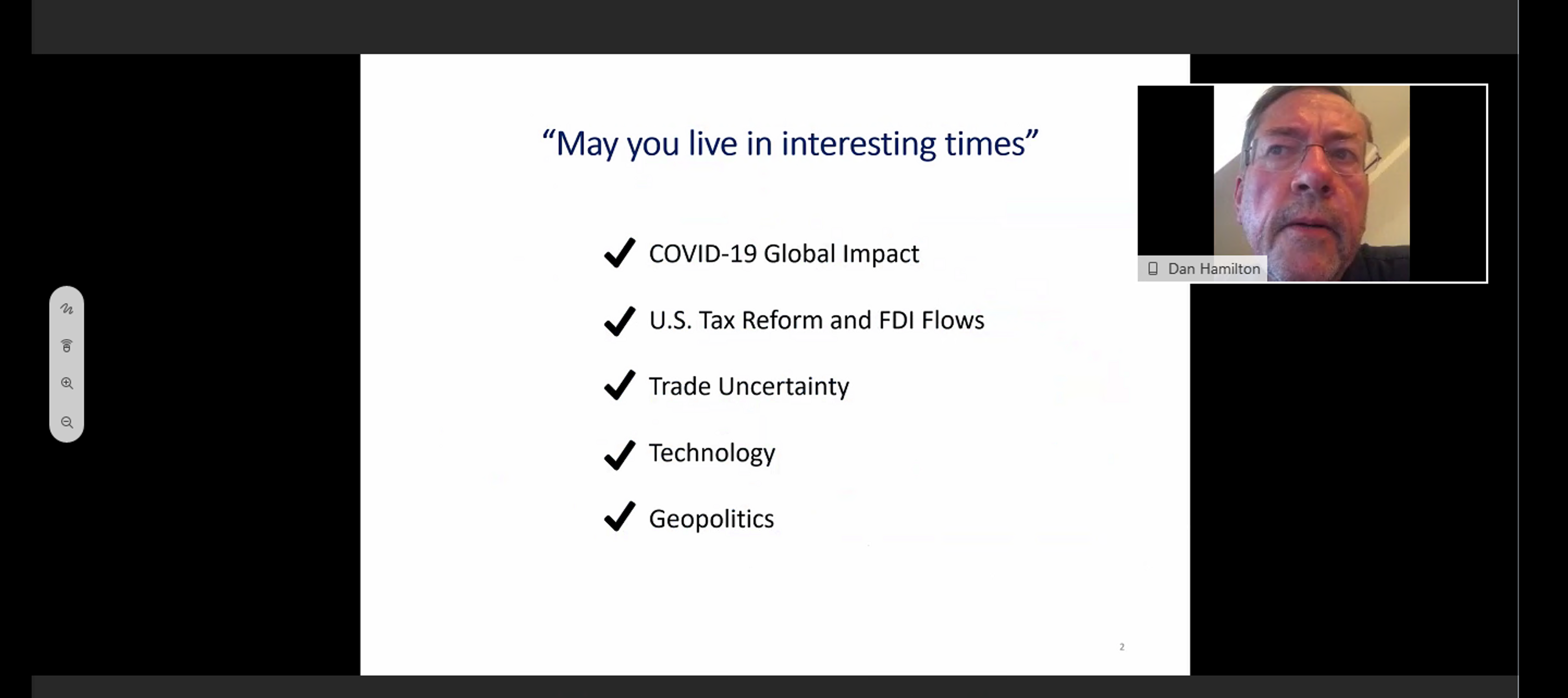On June 18, 2020, members of AmCham Germany participated in a virtual Insights Call hosted by our Regional Chapter Northern Bavaria with Prof. Daniel Hamilton, Senior Fellow at the Robert Bosch Academy and Foreign Policy Institute of the School of Advanced International Studies (SAIS) at Johns Hopkins University.
After introductions by AmCham Germany President Frank Sportolari, Chapter Chair Matthias Koeplin from KPMG and Chapter Member Susanne Deissenberger from Thermo Fisher, Prof. Daniel Hamilton began his presentation on the transatlantic economy. Hamilton started by pointing out that we live in a time of disorientation due to COVID-19, trade conflicts, digital transformation and geopolitics. On top of this, many "truths" that we read about in the news regarding economic relations between Europe and the US are, in fact, only half truths.
This applies, for instance, to Germany's trade relations with China. According to Hamilton, China appears at first glance to be one of the most important trading partners for Germany. However, such a view often excludes contributions made by the services sector. For this reason, Hamilton emphasized that it's always necessary to consider trade in goods as well as trade in services when viewing these statistics. In fact, when taking into account services, the US is and remains Germany's most important trading partner by far.
This is also relevant for transatlantic economic relations as a whole. While trade in goods may be surpassed by other world regions, the services sector accounts for such a large amount of business - and jobs - that it makes the transatlantic marketplace the most important region in the world.
In addition, Hamilton pointed out the importance of digital services, which serve as a cornerstone of EU-US trade and are unparalleled by other economic regions. This is complemented by the strong investment presence of US companies in Europe and European companies in the US, which have set up production facilities in each other's respective markets in order to reach customers more effectively.
In conclusion, Hamilton noted that despite current uncertainty and volatility, we can rest assured that the transatlantic economy is - and will remain - the most important economic area in the world, especially when accounting for services, investment and the digital economy.
We'd like to thank all speakers as well as the Regional Chapter Northern Bavaria for organizing this event.

